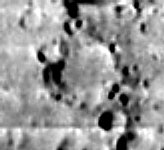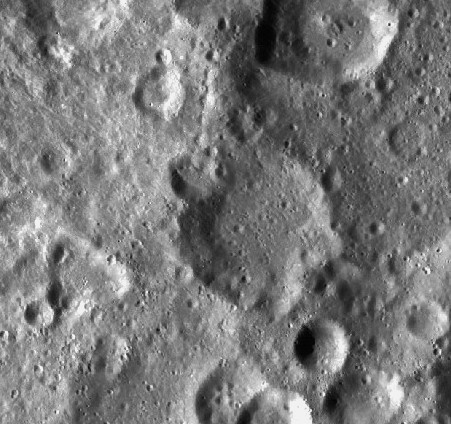Difference between revisions of "Zanstra"
| Line 5: | Line 5: | ||
|} | |} | ||
<div id="toc"> | <div id="toc"> | ||
| − | + | [[Image:zanstra-lo-i_136_m.jpg|external image zanstra-lo-i_136_m.jpg]][[Image:Zanstra.jpg|Zanstra.jpg]]<br /> '''left:''' ''[http://lpod.org/coppermine/displayimage.php?pos=-273 Lunar Orbiter I 136-M].'' '''right''': ''LRO WAC''; '''King''' ejecta at upper left<br /> <br /> | |
| − | |||
==Images== | ==Images== | ||
[http://www.lpod.org/coppermine/thumbnails.php?album=search&type=full&search=Zanstra LPOD Photo Gallery] [http://www.lpi.usra.edu/resources/lunar_orbiter/bin/srch_nam.shtml?Zanstra%7C0 Lunar Orbiter Images] [http://www.lpi.usra.edu/resources/apollo/search/feature/?feature=Zanstra Apollo Images]<br /> - Oblique southward looks at '''Zanstra''':<br /> Apollo 16's panoramic ''ITEK''-camera frame [http://www.lpi.usra.edu/resources/apollo/frame/?AS16-P-4986 AS16-P-4986] and its stereo-companion [http://www.lpi.usra.edu/resources/apollo/frame/?AS16-P-4991 AS16-P-4991]. In both frames, '''Zanstra''' is the crater at extreme left (near the left margin).<br /> - Research: Danny Caes<br /> <br /> | [http://www.lpod.org/coppermine/thumbnails.php?album=search&type=full&search=Zanstra LPOD Photo Gallery] [http://www.lpi.usra.edu/resources/lunar_orbiter/bin/srch_nam.shtml?Zanstra%7C0 Lunar Orbiter Images] [http://www.lpi.usra.edu/resources/apollo/search/feature/?feature=Zanstra Apollo Images]<br /> - Oblique southward looks at '''Zanstra''':<br /> Apollo 16's panoramic ''ITEK''-camera frame [http://www.lpi.usra.edu/resources/apollo/frame/?AS16-P-4986 AS16-P-4986] and its stereo-companion [http://www.lpi.usra.edu/resources/apollo/frame/?AS16-P-4991 AS16-P-4991]. In both frames, '''Zanstra''' is the crater at extreme left (near the left margin).<br /> - Research: Danny Caes<br /> <br /> | ||
| Line 24: | Line 23: | ||
<br /> <br /> | <br /> <br /> | ||
---- | ---- | ||
| − | + | </div> | |
Revision as of 16:59, 15 April 2018
Contents
Zanstra
| Lat: 2.9°N, Long: 124.7°E, Diam: 42 km, Depth: km, Rükl: (farside) |


left: Lunar Orbiter I 136-M. right: LRO WAC; King ejecta at upper left
Images
LPOD Photo Gallery Lunar Orbiter Images Apollo Images
- Oblique southward looks at Zanstra:
Apollo 16's panoramic ITEK-camera frame AS16-P-4986 and its stereo-companion AS16-P-4991. In both frames, Zanstra is the crater at extreme left (near the left margin).
- Research: Danny Caes
Maps
Description
Description: Wikipedia
Additional Information
Nomenclature
Herman Zanstra (November 3, 1894– October 2, 1972) was a Dutch astronomer. He wrote a famous paper, An Application of the Quantum Theory to the Luminosity of Diffuse Nebulae, which for the first time provided a quantitative method (the "Zanstra method") for understanding the luminosity of nebulas and comets.
LPOD Articles
Bibliography